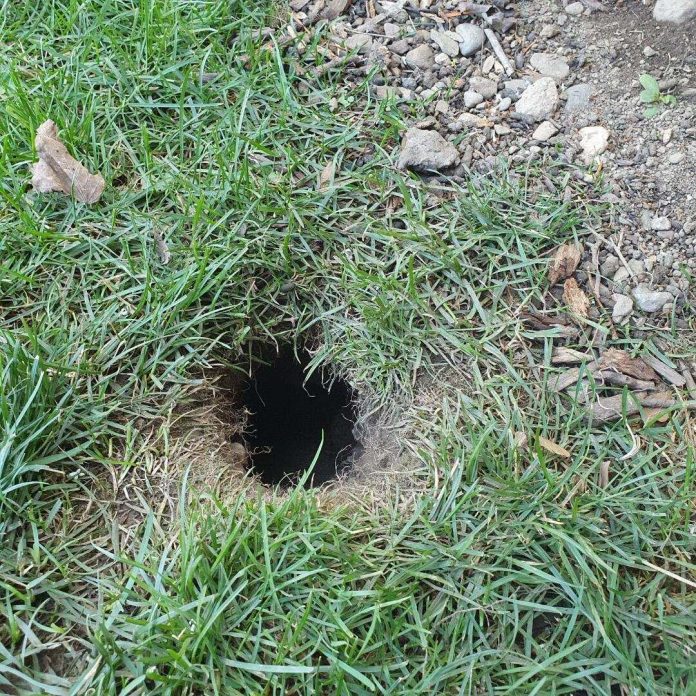

By Max Bowen-max.bowen@northstarreporter.com
In recent weeks many homeowners have reported seeing rats, pointing to a larger problem in the community.
According to Animal Control Officer Felicia Camara, the Norway Rats—also known as sewer rats—seen in town are likely a result of neighboring communities aggressively trying to eliminate them. She said that rats can breed quickly and the males tend to be very territorial. This leads to them expanding their living habitats.
“The more they multiply, the more they’ll need to feed,” she said.
Health Agent Sheri Miller-Bedau said that the sightings haven’t been limited to one or a few areas. Mt. Hope Street, Park Street, and Broadway are just a few of the places were the animals have been reported. In one instance, a dumpster at a condo at 180 Park St. was found to be home to 100-200 rats. She added that construction can sometimes displace rat populations.
“It’s a beautiful complex, very clean, but there was a hole in the dumpster and they were gnawing a hole in the top,” said Miller-Bedau of the condos on Park Street.
The health agent said that this seems to be a new problem in the town. One caller said that a rat charged them. Rodents can carry a number of diseases, such as rabies, Bubonic Plague, hemorrhagic fever, and Salmonellosis, according to the Centers for Disease Control.
Camara said the town is trying to get ahead of the rodent problem, but in a humane way. The problem with rat poisons, she said, is that they can cause Secondary Poisoning. This occurs when a rat dies from a poison and the body is eaten by a hawk, owl, fox, or dog. Most rat poisons cause the rat to bleed out, and the same can happen to animals that eat them, along with seizures.
Camara recently responded to a report of a sick baby fox and determined it had eaten a poisoned rat. The fox died a short time later.
“It was really sad,” she said. “It was a senseless death for no reason.”
Rat X is an effective type of poison that only affects rodents, but Camara said it can be difficult getting them to eat it when garbage is at hand. Instant mashed potatoes are perhaps the best way to kill rats. Residents are advised to place a plate of the potatoes and a bowl of water nearby. Once rats eat these and drink water, the mashed potatoes will expand and their stomachs will burst.
“If you see a perfectly tunneled hole in the ground, it’s likely a rat hole,” said Camara, adding that cats are better at hunting mice than rats.
A related issue is that many people are leaving planting pots and other containers out in their yards. The problem is when they fill with rain, they now provide water for any rodent and consequently help the mosquitoes population grow. Mosquitoes use water to lay their eggs. The area is in its third year of a EEE cycle.
The most effective way to control the spread of rats is to keep trash secured. Holes in dumpsters and trash bins should be sealed, and Camara said that rats can chew through rust. Bird feeders should be removed, as these are a common food source for rats. Miller-Bedau has been speaking to property owners at apartments and condos to make sure dumpsters don’t have holes in the sides or tops. She said that rats only need an ounce of food to survive.
“The main thing is to be vigilant, watch the trash,” she said. “We want these critters to go away.”
Prevent rodent infestations
The best way to prevent a rodent infestation is to remove the food sources, water, and items that provide shelter for rodents.
- Seal up holes inside and outside the home to prevent entry by rodents.
- Trap rodents around the home to help reduce the rodent population
- Avoid illness: Take precautions before and while cleaning rodent-infested areas. -Source: Centers for Disease Control
Why homeowners should worry about rat infestations
Rats can carry pathogens that may transmit disease to humans. Some of these pathogens can be transmitted through the rat’s urine and droppings, which become airborne as they break down and contaminate other dust particles. This means that you may be exposed to pathogens even if you don’t actually see a rat.
Rodents will live almost anywhere in your house, which is why you’ve probably heard of people who had rats in attics, crawl spaces, walls or in old furniture. Rats can even live in chimneys. Where the rats are found nesting, including where you live geographically, can often help you determine which species you’re dealing with.
-Source: Terminix
